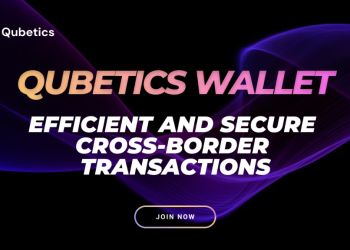Cryptocurrency veteran Barry Silbert of the Digital Currency Group (DCG) has launched the company’s new subsidiary, Yuma, to accelerate the development of decentralized intelligence projects via the Bittensor infrastructure.
As per a statement from the DCG, the unveiling is a significant strategy towards the convergence of crypto and AI, two new technologies disrupting the world besides being poised for exponential growth. The statement further revealed that DCG founder and CEO Barry Silbert will head the firm that proposes to equip startups with infrastructure, capital, and expertise to create apps using the Bittensor decentralized open AI network.

Yuma Will Be an Accelerator and Incubator for Startups
Crypto millionaire Silbert, who draws parallels to the early days of Bitcoin, stated that the features of Bittensor will enable it to make groundbreaking openings like the first-ever cryptocurrency to hit the market. He stated that. “Just like the early days of Bitcoin, which fueled the development of a new form of transparent, borderless money, we’re moving from the digital ownership of assets to the decentralized ownership of intelligence.”
Additionally, Silbert revealed that the new outfit would be a dual-purpose tool as an accelerator and incubator that would support startups. According to the statement, the firm has five active subnets and nine others under development dealing with sports prediction, bot detection, and academic research, among other probable use cases.
Bittensor, the blockchain-based platform that Yuma will build on, is a decentralized AI network that allows contributors to create, train, and access machine learning (ML) models in open marketplaces. The creation that has already caught the eyes of industry heavyweights aims to measure and reward contributors using TAO, the ecosystem’s native token. There’s already growing market interest in the cryptocurrency TAO, which was already trading at $478 at the time of writing.
Users will Earn Rewards in $TAO.
Barry Silbert aims to incentivize growing concerns about decentralizing AI through the TAO token offerings, hoping that Bittensor will take on existing models dominated by tech giants Microsoft and Google. The goal is to make a difference by allowing users who donate computational resources and data to earn rewards in TAO for their participation.
Commenting further on the development, Barry Silbert added, “Just like Bitcoin revolutionized transparent, borderless money, we’re now entering an era of decentralized intelligence. Yuma provides startups and enterprises with the resources to deploy innovative ideas on Bittensor, creating a transformative AI platform accessible to all.”
Contributors to Receive Fair and Accurate Compensation
Bittensor can be compared to a sort of “World Wide Web” focusing on intelligence. The platform enables its users to connect, contribute, and innovate freely. The newly launched subsidiary draws its name from the Yuma Consensus (YC) mechanism. This is the platform’s leading technical innovation, enabling contributors to network on a platform that promotes a semblance of fairness. Contributors to the network receive fair and accurate compensation with $TAO, the platform’s native token.
The Bittensor ecosystem is populated with different kinds of projects called subnets, designed to address specific Machine Learning (ML) or Artificial Intelligence (AI) services, from data storage and translation to text generation, to name a few. Users within the Bittensor protocol contribute their computational power through mining on the subnets, and validators evaluate a user’s contribution to quality to allocate rewards.
Yuma, mining across four subnets, will participate across all the Bittensor network roles to help build and launch subnets and become the ecosystem’s third-largest validator.
Conclusion
The DCG CEO who will also head the newly launched Yuma subsidiary and has a long-term association with fintech and healthcare, is concerned about the potential of decentralized AI and compares it to the early stages of the internet.
As Yuma provides developers with essential resources, including funding, technical infrastructure, and operational support, the new subsidiary is hoped to promote the development of blockchain-based decentralized AI ventures. The launch aligns with DCG’s strategy of using emerging technologies to disrupt traditional finance standards.









